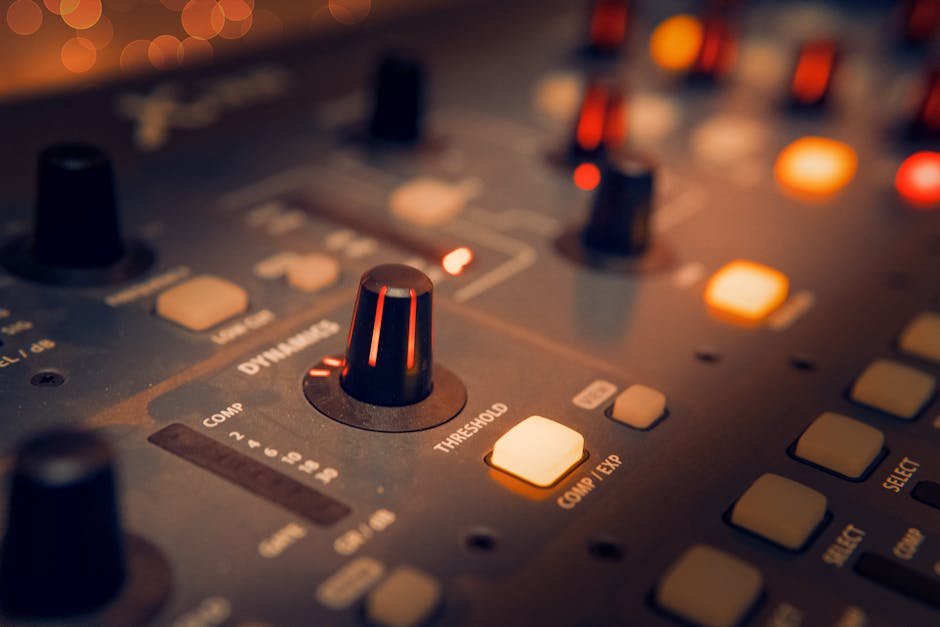How to Master Music: Tips and Tricks from Industry Professionals
Introduction to music mastering
Music mastering is the final step in the music production process. It involves enhancing and optimizing the audio to achieve the best sound quality possible. Mastering professionals use specialized tools to adjust elements like volume, EQ, and compression. Additionally, they ensure that the tracks flow seamlessly together, creating a cohesive listening experience. Mastering is crucial for ensuring that your music sounds polished and professional across different devices and platforms.
Importance of mastering in music production
Mastering is a crucial step in music production that ensures your tracks sound polished and professional. Here are a few reasons why mastering is essential:
Balancing the overall sound of the songs
Enhancing the audio quality to meet industry standards
Ensuring consistency across all tracks in an album
Optimizing the music for different playback systems
Remember, mastering can take your music to the next level and make it stand out in today's competitive music industry.
Understanding the mastering process
Professionals use mastering to enhance music quality by adjusting the overall sound of a song and preparing it for distribution. During mastering, experts refine the song's clarity, balance, and overall impact. By adjusting elements like volume, equalization, and compression, the team ensures the music sounds polished and cohesive across different devices.
Tips from industry professionals
Industry professionals suggest practicing regularly, collaborating with other musicians, and seeking feedback to improve your music skills. Consistency in practice is key to mastering any instrument or genre. Collaborating with fellow musicians allows you to learn new techniques and gain different perspectives. Receiving feedback from professionals can help you identify areas for improvement and refine your musical style. Remember, success in music requires dedication, hard work, and an openness to continuous learning.
Choosing the right mastering tools
Industry professionals recommend using mastering tools such as digital audio workstations (DAWs), plugins, and reference tracks to achieve optimal results. DAWs like Ableton Live, FL Studio, and Pro Tools offer a variety of mastering features. Plugins such as iZotope Ozone and Waves L2 are popular choices for enhancing audio quality. Listening to reference tracks from well-mastered songs can help guide your decisions during the mastering process.
Techniques for achieving a professional sound
To achieve a professional sound in your music, industry professionals suggest focusing on mixing and mastering. Here are some key techniques they recommend:
Use EQ to balance frequencies and make instruments stand out
Apply compression to control dynamics and make the mix more cohesive
Experiment with reverb and delay to add depth and space
Consider parallel processing to add impact without losing dynamics
Utilize reference tracks to compare your mix with professional tracks
By implementing these techniques, you can elevate your music to a professional level that stands out in the industry.
Common mistakes to avoid in music mastering
When mastering music, avoid making these common mistakes to ensure your tracks sound polished and professional:
Over-compressing your tracks can lead to a loss of dynamics and a flat sound.
Over-EQing can make your music sound unnatural and harsh. Aim for subtle EQ adjustments.
Relying too much on presets may result in generic-sounding music. Experiment with different settings to find your unique sound.
Ignoring the importance of reference tracks can lead to a lack of perspective. Compare your music to professionally mastered tracks to ensure quality.
By avoiding these mistakes, you can elevate your music mastering skills and create top-notch tracks.
Mastering for different music genres
Mastering for different music genres is crucial in achieving the desired sound for each type of music. Industry professionals emphasize the importance of tailoring the mastering process to suit the specific genre being worked on. Here are a few key points to keep in mind:
Each genre has its own characteristics and requirements, so it's essential to understand the nuances of the genre you are mastering.
Hip-hop and electronic music often benefit from heavier bass and crisp high-end frequencies to create a punchy and energetic sound.
Rock and metal music may require a more dynamic range and emphasis on guitar tones to maintain the genre's raw and powerful feel.
Pop and commercial music mastering tends to focus on achieving a polished and bright sound to enhance the catchiness of the tracks.
Experimental or avant-garde genres allow for more creative freedom in mastering, enabling unique effects and sonic manipulations.
By adapting your mastering techniques to the specific characteristics of each genre, you can effectively bring out the best in the music and elevate its overall quality.
Mastering in the digital age
With advancements in technology, mastering music in the digital age has become more accessible and efficient. Industry professionals emphasize the importance of using digital tools and software to achieve the desired sound quality. Some key tips to master music in the digital age include:
Utilizing digital audio workstations (DAWs) for editing and fine-tuning tracks
Leveraging plugins and effects to enhance and polish the sound
Understanding the concept of loudness normalization and dynamic range in digital mastering
Experimenting with different mastering techniques to find what works best for your music
By mastering music in the digital age, musicians can achieve professional-grade results and compete in today's music industry landscape.
Conclusion and final thoughts
As you wrap up your journey on mastering music, remember to stay persistent and dedicated to your craft. Implement the tips and tricks shared by industry professionals, and trust in the process. Consistent practice and seeking feedback from experienced individuals can significantly aid in your growth. Embrace challenges with a positive mindset, and always strive for improvement. Remember, mastering music is a continuous learning experience, so enjoy the process and keep creating beautiful melodies.

